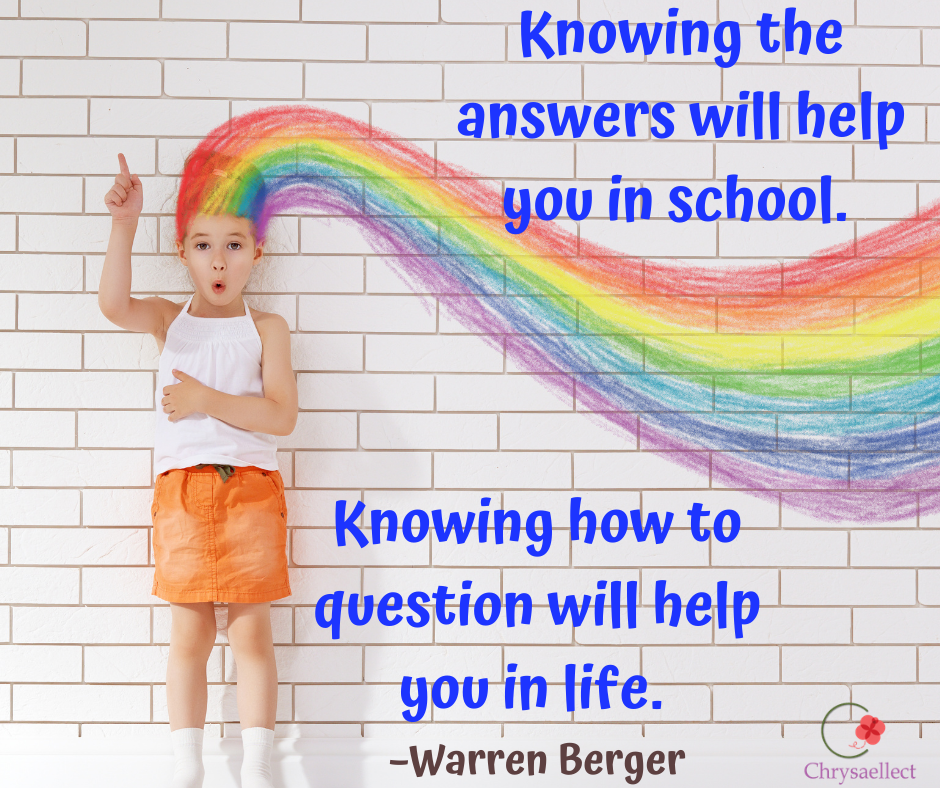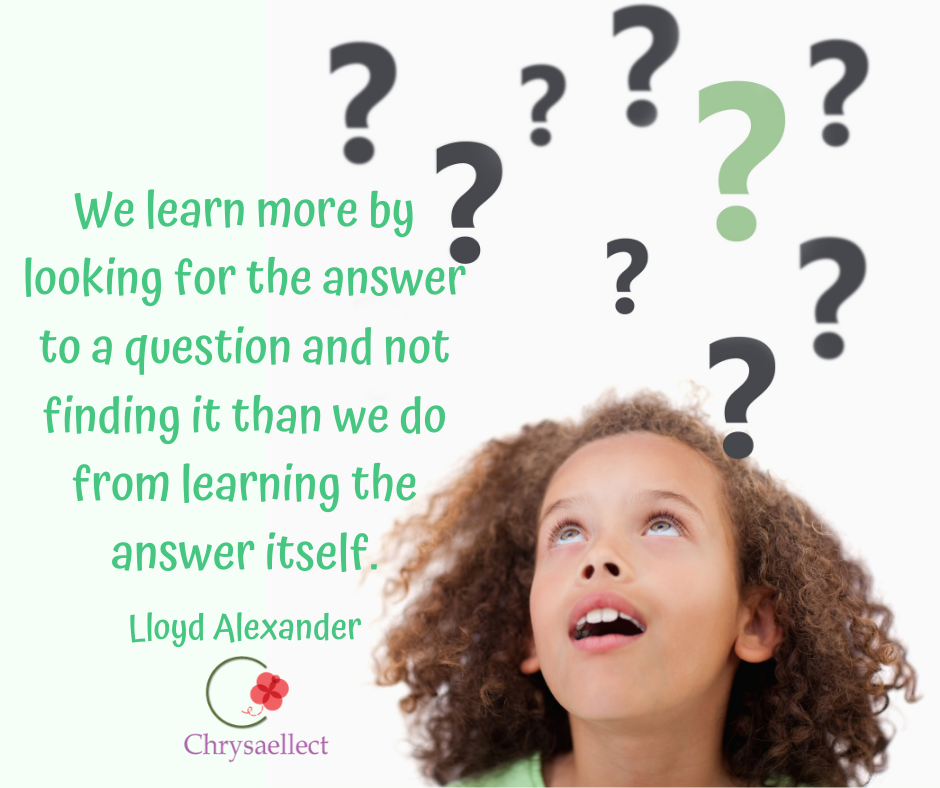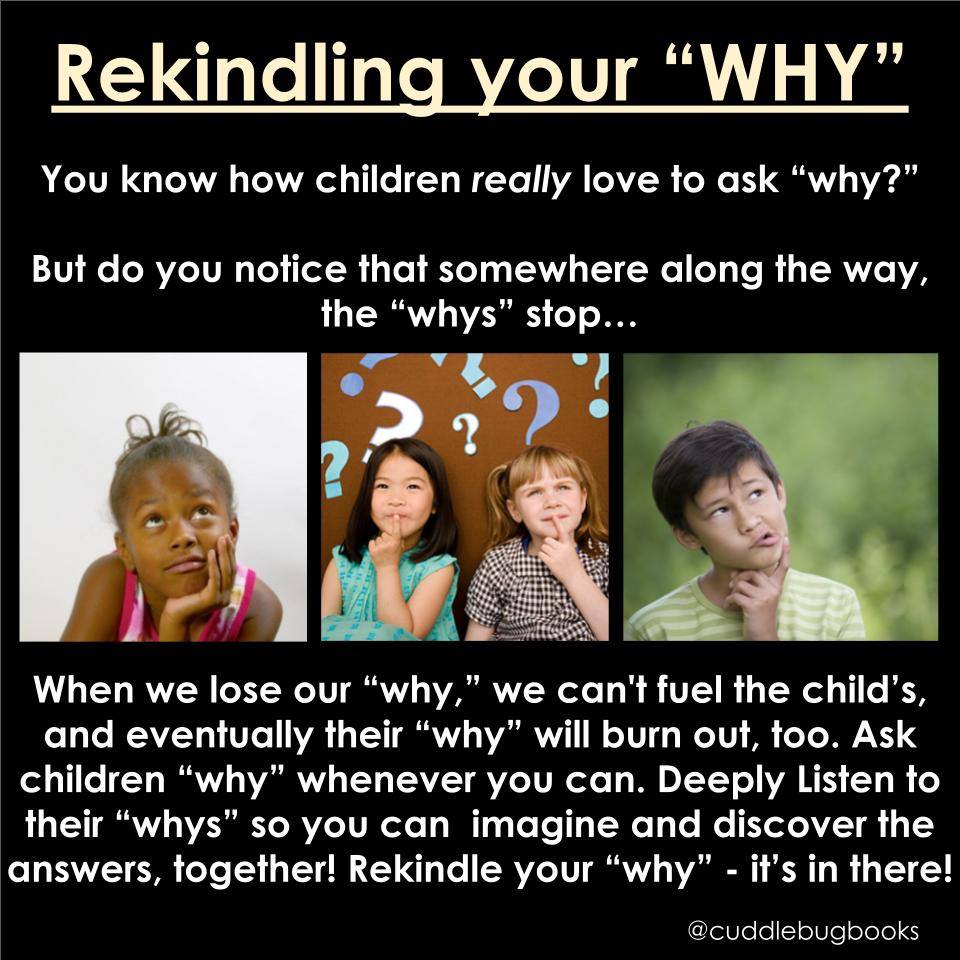- Posted on
- Chrysaellect
- No Comments
Why is “why” so important?
This powerful little word can pack a punch, welcoming us to:
- -Reflect
- -Think
- -Research
- -Observe
- -Theorize
- -Make Connections
- -Imagine
- -Experiment, etc.
I don’t know about you, but that sounds like a lot of cognitive perks to me!
As we know, children already have wonderful innate tools to help them learn about the world around them. Along with play, their evolving language is another powerful way to continuously learn. And whereas dumping blocks out of a basket was a great lesson in cause and effect, how can you understand why the sky is blue? Or why dinosaurs aren’t alive anymore?
Well, you can ask “why!”
And this is where the adults/teachers can take a one of two routes… we can give a quick answer to quickly address/resolve the wonder OR we can slow down the process and welcome children to think about the “why” as well…
“Why do you think the sky is blue?”
“What do you notice/know about the sky?”
“Is the sky always blue?”
“Is the sky blue in space?”
“When/why are colours different?”


There’s a million ways we can slow down and really think about this (example) – This concept should ideally be incorporated in the classroom, as its a great way to initiate and sustain an investigation.
Instead of focusing on children acquiring knowledge, how can we slow down the process to better foster actual learning? How can we utilize an emergent interest to think more critically, to research, brainstorm, exchange ideas, draw conclusion, and to not only ask “why,” but “who,” “how,” “where,” “what” and “when?”
Not only is asking and supporting our children’s “why” important, but its something we need to do for ourselves, in our own everyday practice.
I can recall supporting teachers who have had children with challenging behaviours in their classroom, and they would ask me “what should I do when…?” Well, the problem here is that this is a reactive approach versus proactive. Before we look to “fix” the problem, we first have to understand the “why” – at least as best as we could. And this shift that welcomed teachers to think & observe more critically (often) gave them the answers they were looking for!
Never stop asking “why!”

